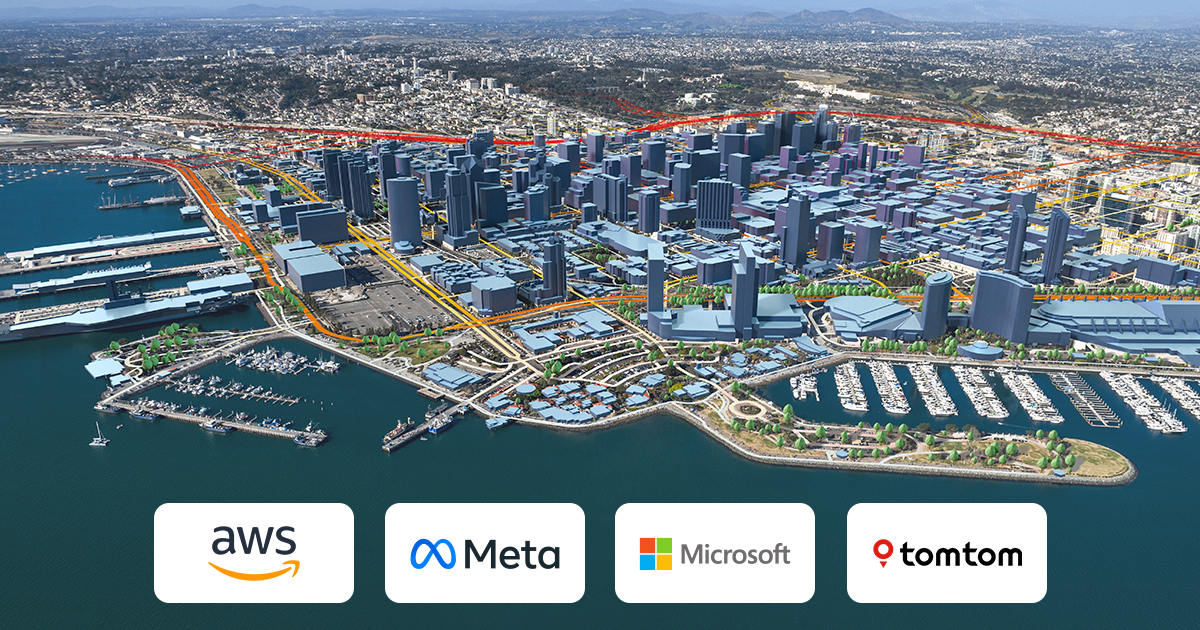 BIG DATA
BIG DATA
 BIG DATA
BIG DATA
 BIG DATA
BIG DATA
Map apps are both a blessing and a curse.
They can be enormously helpful in locating the fastest route around traffic snarls or the closest ice cream shop. Yet they can also be an irritation when erroneously listing businesses as closed or mistaking a private home for a boat ramp.
An effort to lead the lost and misdirected out of the GPS wilderness is underway through the Overture Maps Foundation, a joint initiative facilitated by the Linux Foundation and founded by Meta Platforms Inc., Amazon Web Services Inc., Microsoft Corp. and TomTom NV. The goal is to incorporate map data from multiple sources and create a reliable, well-structured schema that will ultimately reduce errors.
“Maps do always change and that’s part of the challenge with them,” Overture Executive Director Marc Prioleau said in an interview with SiliconANGLE for this story. “If someone uses a map 999 times and it works, but one time it doesn’t, they’ll remember that one time until they die.”
At its core, the quest for more reliable mapping is a data challenge. Map applications are dependent on up-to-date information from a wide range of sources and an engine that can process a massive amount of directional data rapidly and accurately.
Founded in December of 2022, Overture was chartered to power next-generation map products through development of reliable, easy-to-use and interoperable open map data. The Foundation released the Data Schema and Global Entity Reference System or GERS in June and launched a second version of Open Map Data in October.
As Overture has focused on building a structure to drive open map data sharing, GERS has emerged as a key element. It’s a tool to boost interoperability among varying datasets by using an ID to bridge Overture’s open map data with geospatially tagged information from companies and organizations.
“The [GERS] connector is a really important thing,” Prioleau said. “We think that’s the connector that allows people to build the richness.”
The rise of generative AI offers an opportunity to create even richer map datasets, and a number of new use cases have emerged in recent months. Earlier this year, an international organization used AI to track unreported fishing vessels, and AI Superior GmbH has developed a solution to detect and localize graffiti rapidly on street signs in urban areas. Google LLC announced a pilot project in February that would add generative AI features to its Maps application.
“With generative AI, there’s some interesting stuff happening with it,” Prioleau noted. “People are using large language models to look at map data and generate quality control metrics. But it’s hard to do at scale for the entire world right now.”
One major company that is notably absent from Overture’s list of contributors is Google, yet the search giant has been participating in other ways. The foundation has been working with both Microsoft and Google to address the thorny problem of reliable place data by increasing the buildings mapped in its dataset by more than two billion through the firms’ satellite imagery information.
“One of the hardest datasets in mapping is place data,” Prioleau explained. “The amount of data that has come around that has really grown.”
An open question at the present is how much participation Overture will see from automakers. Vehicle manufacturers have a vested interest in providing accurate map technology for customers, yet Hyundai Motor Co. is the only auto company currently listed as a contributing member in the Linux Foundation’s initiative.
Prioleau notes that founding member TomTom is heavily involved in automotive mapping, and he is hopeful more automakers will join Hyundai as the work of the foundation progresses.
“I think we’ll have some more pretty quickly,” Prioleau told SiliconANGLE. “I hope we offer a really good value proposition for them.”
Overture Maps is part of a broader effort on the part of the Linux Foundation to ensure that open data can be freely used, reused and redistributed by anyone. By promoting open data access for map information, the foundation hopes to strengthen mapping services worldwide through a shared asset that will only get better over time.
“What we see happening in map data is a lot of data is being plugged into it,” Prioleau said. “That dataset is getting so big, it’s virtually impossible for one company to do it. What we’ve been doing is laying the foundation.”
Support our mission to keep content open and free by engaging with theCUBE community. Join theCUBE’s Alumni Trust Network, where technology leaders connect, share intelligence and create opportunities.
Founded by tech visionaries John Furrier and Dave Vellante, SiliconANGLE Media has built a dynamic ecosystem of industry-leading digital media brands that reach 15+ million elite tech professionals. Our new proprietary theCUBE AI Video Cloud is breaking ground in audience interaction, leveraging theCUBEai.com neural network to help technology companies make data-driven decisions and stay at the forefront of industry conversations.